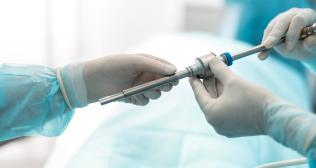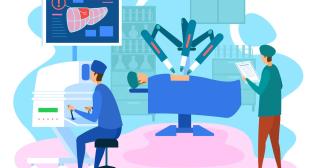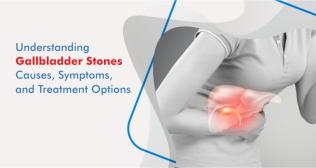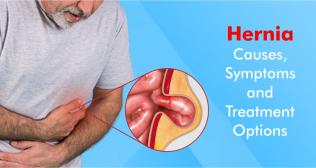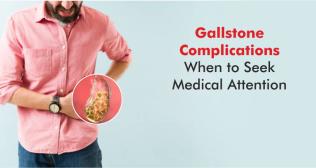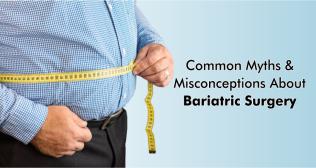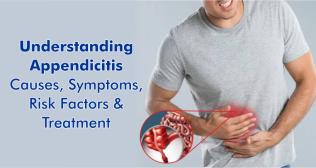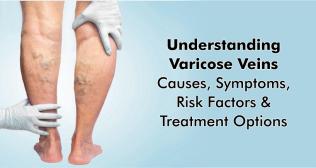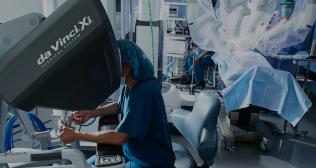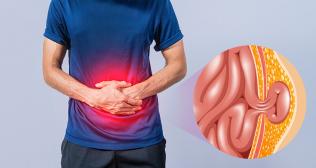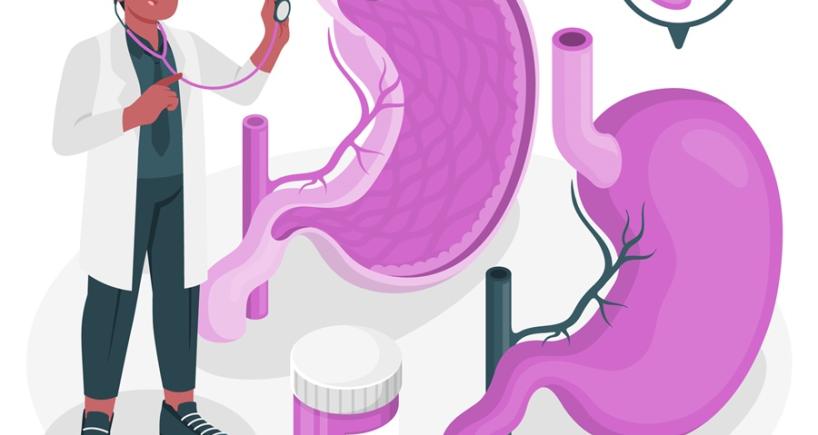
Staging Gallbladder Disorders: A Step-by-Step Guide
In our human body - the gallbladder organ resembles the shape of a pear and is a sac present just below the liver. The gallbladder is the “holding area” for bile. The liver produces bile to aid digestion of foods. The gallbladder discharges the bile into the small bowel to aid in breaking down food, particularly fatty foods.
Generally, the gallbladder is not the matter of a health concern. However, if something impedes the flow of bile/ obstructs it totally, then problems can happen.
The presence of other (co-morbid) conditions may also lead to gallbladder issues, comprising:
- Obesity
- Childbirth
- Gender-related (female) conditions
- Consumption of fatty foods
This miniature manual explores the staging of common gallbladder disorders, providing a complete picture for understanding and managing these conditions effectively.
Common gallbladder disorders
They include:
Gallstones (cholelithiasis)
Stones develop in the interior portion of the gallbladder and can cause pain. However, approximately 90% of patients suffering from gallstones may have no symptoms and may have had the stones present for several years. Studies indicate that patients with gallstones present for ten or more years are less likely to cause symptoms.
Stage 1 – Lithogenic State
This is known as the pre-gallstone state. The conditions inside your gallbladder favor gallstone production, but nothing has formed yet.
Stage 2 – Asymptomatic Gallstone Formation
Many people may be dealing with asymptomatic gallstone formation and not even know it.
Stage 3 – Symptomatic Gallstone Formation
In the third stage, you will begin experiencing episodes of biliary colic or bile duct blockage.
Stage 4 – Complicated Choleithasis
Cholelithiasis is the medical term for gallstone development, and in the final stage, the condition is complicated and potentially dangerous.
Treatment of gallstones
The general treatment for gallstones is surgery to take out the gallbladder. Doctors sometimes can utilise nonsurgical treatments to treat cholesterol stones, but pigment stones usually require surgery.
Inflamed gallbladder (cholecystitis)
Gallbladder inflammation can be triggered by gallstones – the most predominant cause – too much alcohol usage, infections/even tumors that cause bile buildup. The gallbladder may burst, which is cause for a surgical emergency.
Gallbladder inflammation can be:
- Acute (sudden and urgent).
- Chronic (slow as well as longstanding).
- Calculous (connected to gallstones).
- Acalculous (not connected to gallstones).
An inflamed gallbladder can be a prompt response to an urgent problem/a slow response to a long-term issue. This is the distinction between acute cholecystitis as well as chronic cholecystitis.
Gallstones are usually the cause of both long term as well as acute cholecystitis. So, most cases are “calculous.” Healthcare providers use “acalculous” to distinguish cholecystitis unrelated to gallstones.
Treatment of Cholecystitis
This condition is treated immediately in the hospital. Treatment begins with supportive care, including:
- Intravenous (IV) fluids while your digestive system rests.
- IV antibiotics to treat or prevent infections.
- IV pain relief is what most people need.
- The definitive treatment for cholecystitis is surgery to remove patient’s gallbladder.
Choledocholithiasis
In this condition, at least one gallstone is present in the common bile duct. The stone may comprise bile pigments or calcium and cholesterol salts.
There are both symptomatic and asymptomatic choledocholithiasis (common bile duct stone). In cases of asymptomatic choledocholithiasis, symptoms may be seen at the advanced stage, but symptomatic choledocholithiasis can be seen immediately.
Treatment of Choledocholithiasis
Since there are no medications that treat the condition, surgeries are the only way forward. The standard surgical treatment of choledocholithiasis includes:
- Endoscopic retrograde cholangiopancreatography (ERCP)
- Cholecystectomy
Diagnosis of Gallbladder Disorders
Healthcare professional will first conduct a complete medical history and physical examination. Diagnostic tests will then be utilised to assess if the abdominal pain is caused only by gallstones or another condition – one or more of the following techniques may be utilised:
- Abdominal X-ray
- Blood tests
- A computed tomography (CT) scan of the organs lying in the abdominal area
- Endoscopic retrograde cholangiopancreatography (ERCP) - During the procedure, a tube is placed down the throat, into the tummy, then into the small bowel. Dye is introduced, and the ducts of the gallbladder can be visualised on X-ray.
- Endoscopic Ultrasound (EUS) is a specialized ultrasound probe placed on an endoscope that is utilised to image the gallbladder as well as biliary duct.
- HIDA scan - A radioactive material known as hydroxy iminodiacetic acid (HIDA) is injected as well as is taken up by the gallbladder to assess gallbladder emptying function.
In summary, staging gallbladder disorders is important for assessing appropriate management strategies and predicting outcomes. Innovations in diagnostic procedures/methods and treatment choices continue to enhance patient health.
Popular Searches :
Hospitals: Cancer Hospital in Delhi | Best Heart Hospital in Delhi | Hospital in Amritsar | Hospital in Ludhiana | Hospitals in Mohali | Hospital in Faridabad | Hospitals in Gurgaon | Best Hospital in Jaipur | Hospitals in Greater Noida | Hospitals in Noida | Best Kidney Hospital in Kolkata | Best Hospital in Kolkata | Hospitals in Rajajinagar Bangalore | Hospitals in Richmond Road Bangalore | Hospitals in Nagarbhavi Bangalore | Hospital in Kalyan West | Hospitals in Mulund | Best Hospital in India | | Cardiology Hospital in India | Best Cancer Hospital in India | Best Cardiology Hospital in India | Best Oncology Hospital In India | Best Cancer Hospital in Delhi | Best Liver Transplant Hospital in India
Doctors: Dr. Rana Patir | Dr. Rajesh Benny | Dr. Rahul Bhargava | Dr. Jayant Arora | Dr. Anoop Misra | Dr. Manu Tiwari | Dr. Praveer Agarwal | Dr. Arup Ratan Dutta | Dr. Meenakshi Ahuja | Dr. Anoop Jhurani | Dr. Shivaji Basu | Dr. Subhash Jangid | Dr. Atul Mathur | Dr. Gurinder Bedi | Dr. Monika Wadhawan | Dr. Debasis Datta | Dr. Shrinivas Narayan | Dr. Praveen Gupta | Dr. Nitin Jha | Dr. Raghu Nagaraj | Dr. Ashok Seth | Dr. Sandeep Vaishya | Dr. Atul Mishra | Dr. Z S Meharwal | Dr. Ajay Bhalla | Dr. Atul Kumar Mittal | Dr. Arvind Kumar Khurana | Dr. Narayan Hulse | Dr. Samir Parikh | Dr. Amit Javed | Dr. Narayan Banerjee | Dr. Bimlesh Dhar Pandey | Dr. Arghya Chattopadhyay | Dr. G.R. Vijay Kumar | Dr Ashok Gupta | Dr. Gourdas Choudhuri | Dr. Sushrut Singh | Dr. N.C. Krishnamani | Dr. Atampreet Singh | Dr. Vivek Jawali | Dr. Sanjeev Gulati | Dr. Amite Pankaj Aggarwal | Dr. Ajay Kaul | Dr. Sunita Varma | Dr. Manoj Kumar Goel | Dr. R Muralidharan | Dr. Sushmita Roychowdhury | Dr. T.S. MAHANT | Dr. UDIPTA RAY | Dr. Aparna Jaswal | Dr. Ravul Jindal | Dr. Savyasachi Saxena | Dr. Ajay Kumar Kriplani | Dr. Nitesh Rohatgi | Dr. Anupam Jindal |
Specialties: Heart Lung Transplant | Orthopedic | Cardiology Interventional | Obstetrics & Gynaecology | Onco Radiation | Neurosurgery | Interventional Cardiology | Gastroenterologist in Jaipur | Neuro Physician | Gynecologist in Kolkata | Best Neurologist in India | Liver Transfer







